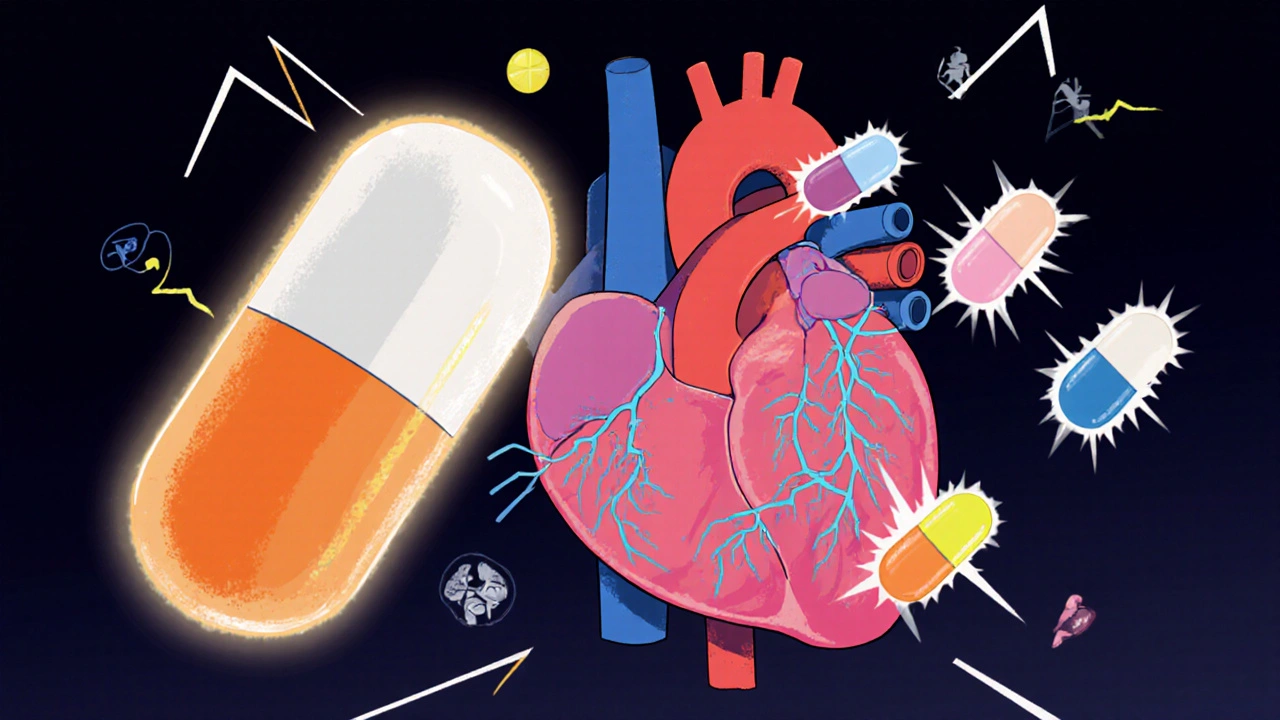Heart Rhythm Meds: What They Are, How They Work, and What You Need to Know
When your heart skips, races, or flutters out of sync, you might be dealing with an arrhythmia, an abnormal heart rhythm that can be harmless or life-threatening. Also known as dysrhythmia, it’s treated with a group of drugs called heart rhythm meds, or antiarrhythmic drugs. These aren’t just pills to calm your pulse—they’re precision tools that target the heart’s electrical system, and getting them wrong can be dangerous.
Not all heart rhythm meds are the same. Some slow down electrical signals, others reset the heart’s natural pacemaker, and a few block specific ion channels to prevent erratic firing. Common ones include amiodarone, flecainide, propafenone, and sotalol. But here’s the catch: each has its own risks. For example, some can cause QT prolongation, a dangerous lengthening of the heart’s electrical cycle that can trigger sudden cardiac arrest. Others may worsen the very rhythm problem they’re meant to fix. That’s why doctors don’t just pick one based on symptoms—they look at your full history, kidney function, other meds you’re on, and even your age.
Many people think if their heart feels off, a heart rhythm med is the answer. But that’s not always true. Sometimes lifestyle changes, stress reduction, or treating an underlying issue like thyroid disease or sleep apnea fixes the problem without drugs. And even when meds are needed, they’re often used alongside devices like pacemakers or ICDs—not instead of them. The goal isn’t just to stop the fluttering; it’s to keep you alive and feeling normal over the long term.
You’ll find posts here that dive into real-world cases: how one person managed side effects from amiodarone, why sotalol isn’t always safe for older adults, and what to do if you’re on multiple drugs that could interact. We also cover how to spot warning signs like dizziness, fainting, or new chest tightness—things that mean it’s time to call your doctor, not just wait it out. There’s no one-size-fits-all when it comes to heart rhythm meds. What works for your neighbor might not work for you, and that’s okay. The key is knowing how they work, what to watch for, and when to push back if something feels wrong.
Below, you’ll find practical guides, real patient experiences, and clear comparisons that help you understand which heart rhythm meds are used for which situations—and why some are avoided altogether. No fluff. Just what you need to know to talk smarter with your doctor and take better care of your heart.
Cordarone (Amiodarone) vs. Alternatives: What Works Best for Arrhythmias?
Cordarone (amiodarone) is effective for serious heart rhythm disorders but carries serious long-term risks. Learn how alternatives like sotalol, dronedarone, and ablation compare in safety and effectiveness.
